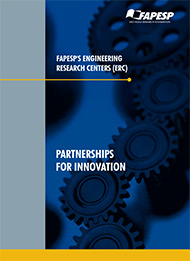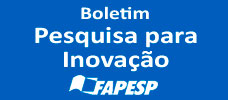Center for Research in Immuno-oncology (CRIO)

Center for Research in Immuno-oncology (CRIO)
Goal: Advancing research on novel targets for cancer immunotherapy drugs, particularly for tumors that have limited response to current therapies
Coordinator: Kenneth Gollob
Host Institution: Albert Einstein Israeli Institute of Education and Research (IIEPAE)
Business partner: GlaxoSmithKline Brasil Ltda (GSK)
https://crio.einstein.br/
+55 11 2151-5628
crio.einstein@gmail.com
FAPESP Process 2021/00408-6
Term: Jul 2022 to Jun 2027
Established in 2022, CRIO is a collaborative initiative between FAPESP and pharmaceutical company GlaxoSmithKline (GSK). Its headquarters are situated within hospital Albert Einstein in São Paulo, Brazil.
CRIO emerged from a robust scientific partnership comprising hospital Albert Einstein, A.C.Camargo Cancer Center, the University of São Paulo’s Ribeirão Preto Medical School (FMRP-USP), hospital Vila Santa Catarina, and GSK. Its mission is to pioneer the creation of knowledge that addresses the prevailing challenges in immunotherapy.
Immunotherapies are designed to combat cancer by bolstering a patient's immune response. While they are effective for various cancer types, responsiveness can differ: 12% to 60% of patients exhibit minimal or no response depending on the tumor type and individual differences. Additionally, potential side effects present further challenges. CRIO's primary objective is to identify and validate novel immunoregulatory targets to enhance treatment efficacy and the range of treatable tumors.
Furthermore, to increase the accessibility of immunotherapy, CRIO is dedicated to discovering biomarkers that predict patient responses to and severe adverse effects of both conventional and immune checkpoint therapy. Its overarching aim is to advance therapeutic strategies and improve the prognosis for cancer patients.
RESEARCH AREAS
1. Perform patient centric multiomics studies to discover molecules, pathways or cells critical to inducing anti-tumor immune responses across underserved cancers such as colon, lung, oral cavity, and gynecological cancers.
2. Leverage patient derived systemic and local tumor immune responses to understand potential points of intervention to increase anti-tumor responses and identify biomarkers of therapeutic response.
3. Perform individual patient tumor genomics and circulating tumor DNA analysis to identify potential targets and predictors of response.
4. Elucidate the role of the patient microbiome in therapeutic response and regulation of the anti-tumor immune response.
5. Perform and develop machine learning/AI tools for advancing high dimensional dataset analysis.
6. Regulate cancer specific immune response by targeting tumor-associated macrophages (TAMs) and regulatory T cells (Tregs).
7. Target tumor associated neutrophils and neutrophil extracellular traps (nETs) for cancer treatment.
8. Explore the effects of the SWI/SnF complex on gene regulation to subvert immune cell activation in cancer.
9. Set novel immune cell-based regulatory targets for colorectal cancer treatment.
10. Establish 2D, 3D and in vivo models of immune-tumor interaction for validation of potential immune-activating therapies.
RESEARCH HIGHLIGHTS
FAPESP launches Engineering Research Centers with Embraer, Ericsson and GSK
The Center for Research in Immuno-Oncology (CRIO), to be set up with GSK and hosted by the Albert Einstein Jewish Institute for Education and Research (IIEP), will pursue novel targets for cancer immunotherapy drugs to treat tumors that do not respond well to existing therapies, as well as seeking markers to predict which patients will respond best to immunotherapy
BV-FAPESP
https://bv.fapesp.br/en/auxilios/109200/



